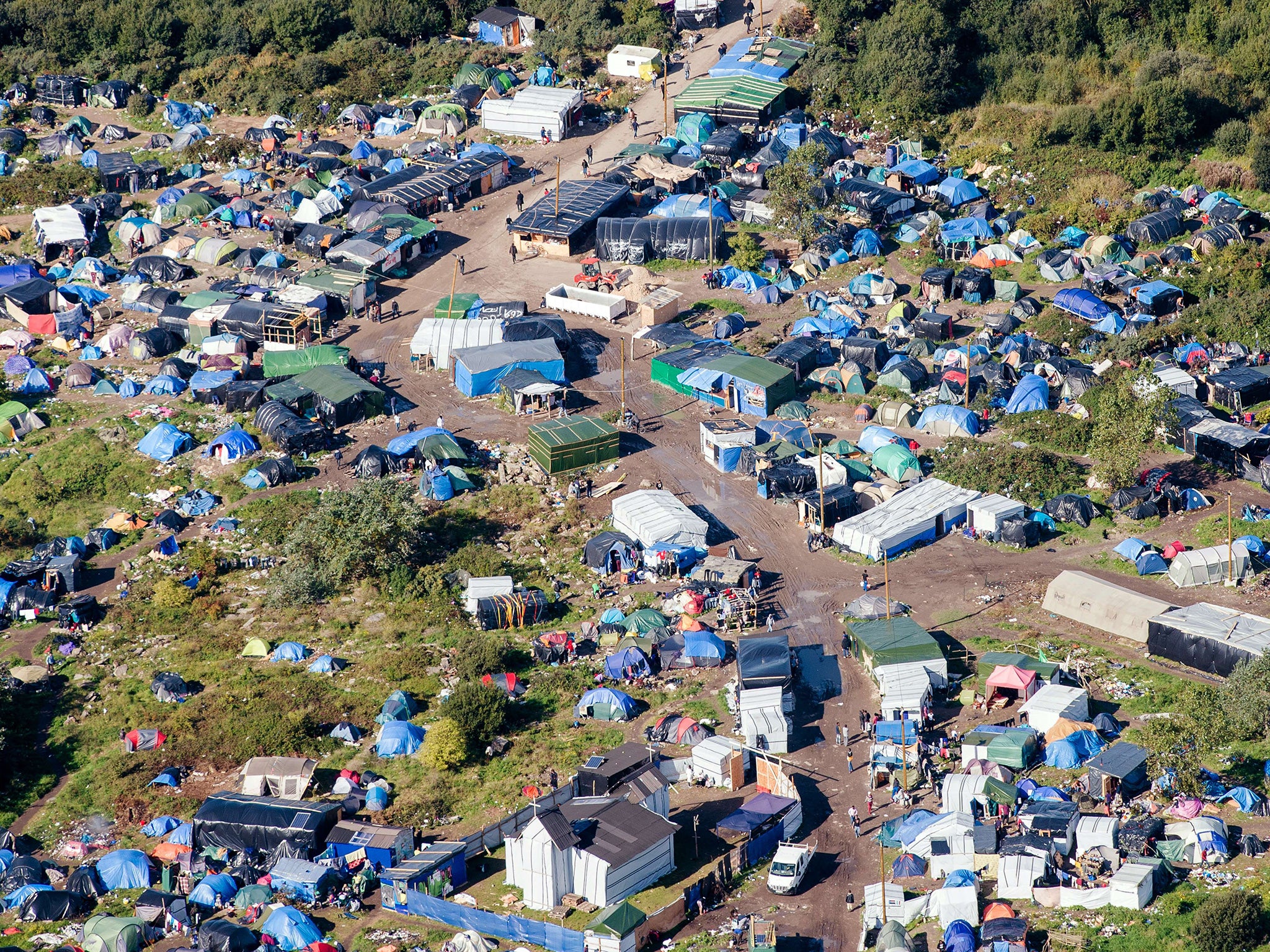Police use anti-terrorism powers to detain UK volunteers taking aid to Calais refugee camp
6,000 people live in squalor near the Calais ferry terminal

British volunteers on a humanitarian aid run to refugees in Calais were detained by police under legislation meant to be used against suspected terrorists, an aid group has told the Independent.
Two people working with the London2Calais group said they were stopped and held for three hours under Schedule 7 of the Terrorism Act 2000 while returning to the UK at Calais.
One of the pair, who were travelling in the same vehicle, said Kent Police counter-terror officers carried out the detention on the Calais side of the channel.
Kent Police would not provide any further information about the alleged incident and said “routine” stop checks were used at borders.
London2Calais, which has raised around £13,000 on the crowd funding website IndieGoGo, has run a number of convoys delivering aid to refugees trapped on the other side of the channel.
The group has since August distributed thousands of food packages at “the Jungle” refugee camp and says it has also delivered clothes, sleeping bags, a water pump, and a power generator intended to be used for a school located in the camp.
It is one of a number of groups that is providing aid and assistance to people stuck in the French port town on their way to the UK.
Syed Bokhari, the organisation’s joint-secretary and one of the people apparently detained, said that the detention was part of a persistent “campaign” against the group’s activities.
“We are routinely delayed, questioned and treated like criminals because of the solidarity we bring to refugees stuck in 'The Jungle' in Calais,” he told the Independent.
“Last night Special Branch and Counter-Terror units abused powers under section 7 of the Terrorism Act 2000 to hold up one of our teams as we attempted to return to the UK from working in the camp in Calais.
“We were delayed for 3 hours and quizzed by a series of police officers who attempted to intimidate us with the Terrorism Act.
“This is the latest escalation in a sustained campaign of harassment against London2Calais and other groups and individuals supporting refugees in Calais.”
There are now around 6,000 people living in the Jungle, the name given to various encampments on unoccupied land around the ferry and Eurotunnel terminal in Calais. The size of the informal settlement has increase significantly since last year.
In September doctors who had visited the camp warned that the people in the camp, a mixture of refugees, asylum seekers, and other migrants, were living in appalling conditions.
Many of the people living in the camps have made the dangerous crossing over the Mediterranean, or travelled through the Western Balkans and Europe.

The British Government has said it will take 4,000 Syrian refugees a year from camps in countries near the conflict zone, but has refused to take additional people who have already risked their lives travelling to Europe under their own steam.
Ministers have previously raised concerns that action to help refugees, including rescue from drowning, would act as a “pull” factor and encourage people to make the journey.
Other countries, most notably Germany, have accepted hundreds of thousands of refugees. A study released by the European Commission on Thursday found that countries taking the most refugees would receive “sizable” economic benefits in terms of GDP, employment rates, and long-term budget sustainability.
Three million people are now expected to arrive in Europe by the end of 2016, according to the Commission.
Schedule 7 of the Terrorism Act 2000 allows police, customs and immigration officials to detain a person in ports or border areas in order to ascertain whether they are involved in terrorism offences.
Reasonable suspicion is not required for a detention of up to six hours to take place.
A written notice seen by the Independent that was apparently given to the volunteers reads: “You have been detained under paragraph 6 of Schedule 7 of the Terrorism Act 2000 (“Schedule 7”), so that an Examining Officer may exercise his power under paragraph 2 or 3 of that Schedule for the purpose either of determining whether you appear to be a person who is or has been concerned in the commission, preparation or instigation of acts of terrorism …”.
“You are not under criminal investigation and are not under arrest on suspicion of having committed an offence. For this reason you are not being issued with a caution and you do not have the right to remain silent. Should the circumstances change during the course of the examination you will be notified.”
A spokesperson for Kent Police said: “Kent Police does not give details of any groups or individuals stopped and searched at the borders.
“Our officers perform routine stop-checks, as is normal procedure, as part of our commitment to protect the public from harm.”
Join our commenting forum
Join thought-provoking conversations, follow other Independent readers and see their replies
Comments
Bookmark popover
Removed from bookmarks